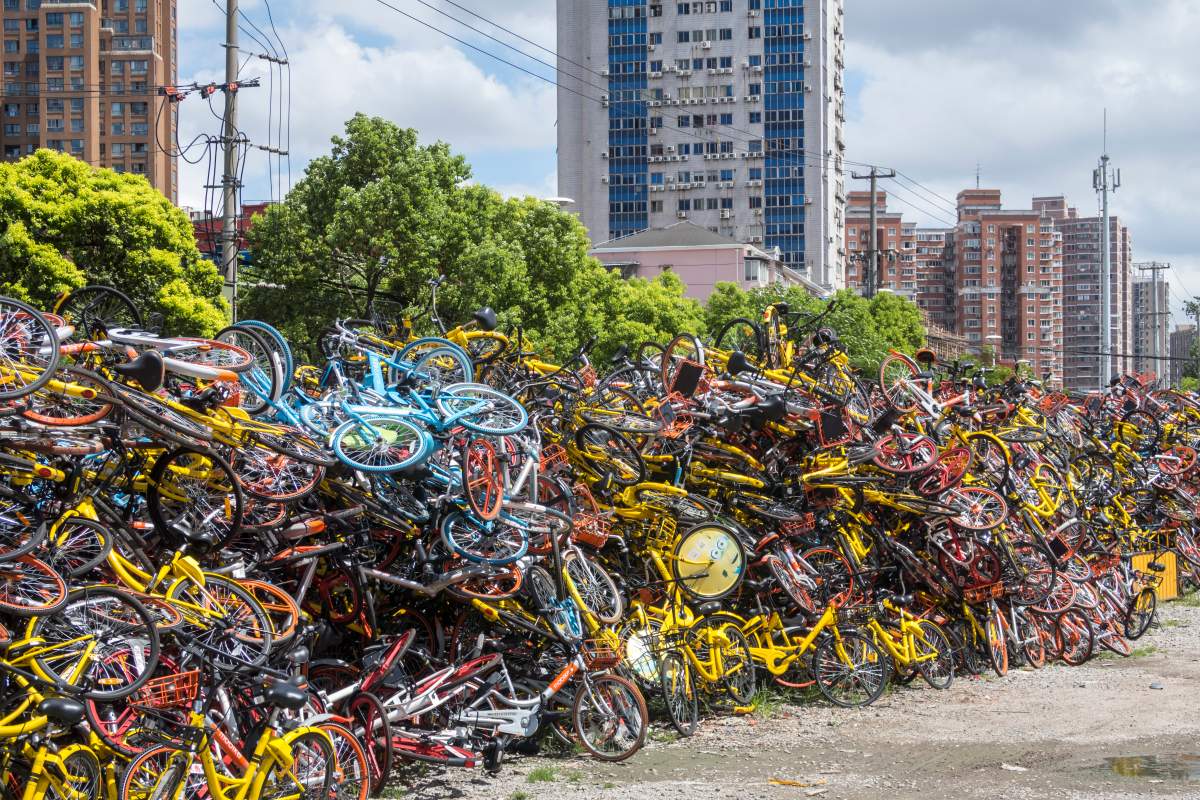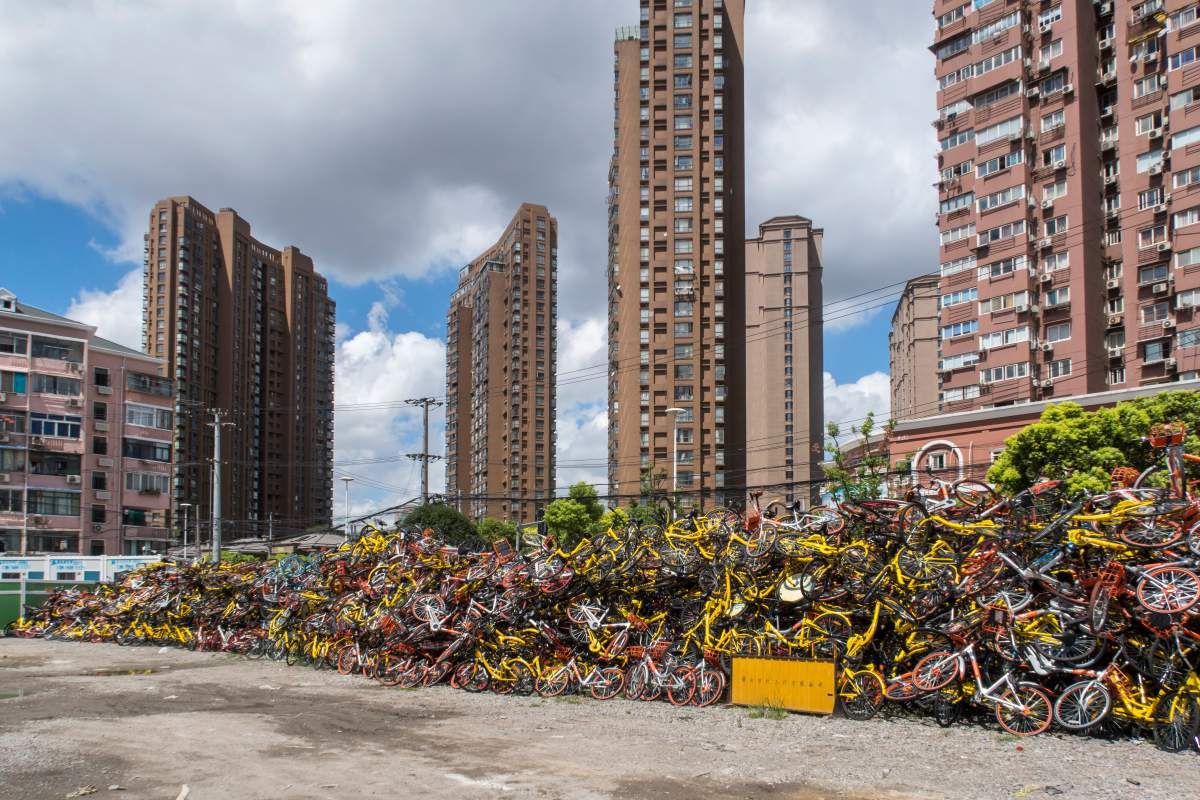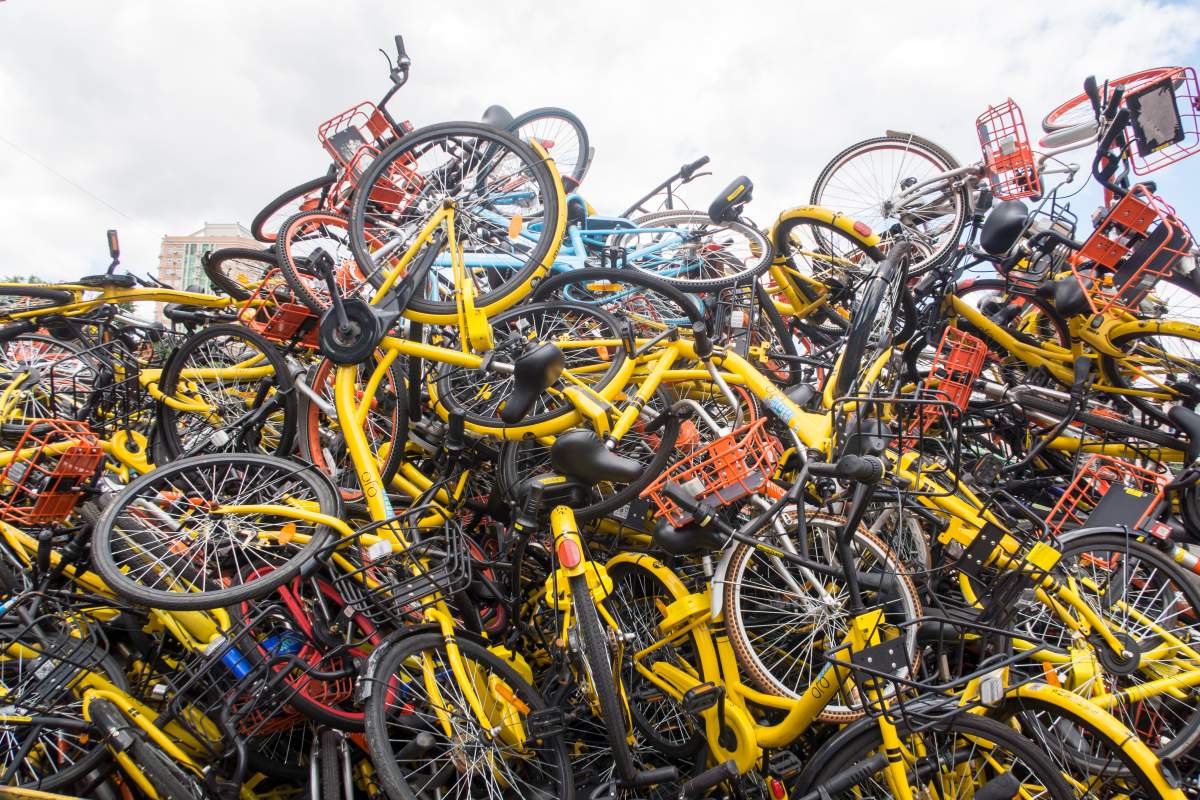China’s bike-sharing industry has been called the “Uber for bikes,” but as the piles of discarded bikes grow in size and number across the country, many have begun to wonder whether the model is sustainable.

WATCH: Toronto to expand Bike Share program

This past week, one of China’s largest bike-sharing companies, Bluegogo, went bankrupt after plowing through 600 million yuan (C$115,534,305) of investor funding just one year since it was founded by CEO Li Gang.
Two days after the bankruptcy, a photographer with the Guardian captured photos of a “bicycle graveyard” in the city of Xiamen containing thousands of bikes from the country’s top three bike-sharing companies; Mobike, Ofo and up until recently, Bluegogo.
China’s cycle-for-hire startups let users unlock GPS-enabled bikes through a smartphone app, ride them for pennies per 30-minute trip, and drop them off anywhere. Ergo, eliminating the need for a bike dock or a lock.
Companies have deployed millions of bikes across China, with over 1.5 million circulating in Shanghai alone, reports the Guardian.
According to a Guardian report from earlier this year, the bike-sharing startups fervently compete for territory and often provide a poor service as a result.

Get breaking National news
Sidewalks and pedestrian areas are dotted with thousands of “dockless” bikes, which are often not maintained or supervised.
Bluegogo’s collapse has raised questions about whether there are too many bikes and not enough demand.
In an open letter following the shutdown, Bluegogo’s CEO wrote that he had been “filled with arrogance,” and apologized for the company’s missteps.
WATCH: City of Vancouver launches much-delayed bike-share program

“We fought until the very last and I believe we can all leave with pride and our heads held high,” Li Gang wrote, adding he ensured months of sleepless nights. Heading into the announcement, Bluegogo had 20 million registered users of the company’s 600,000 bikes.
Several Chinese cities see sidewalks clogged with bikes, in many cases rendering walkways unfit for pedestrians. In some cases, empty spaces have become default impound lots for authorities who confiscate the bikes from main streets and have nowhere to put them.
Bicycles parked illegally are also detained and impounded in these so-called “bicycle graveyards,” some of which contain as many as 10,000 bikes. Other cities have decided to simply leave them be, hoping to encourage green transportation, Mashable reports.
Regulators have begun tightening the rules around shared bikes and have raised concerns that too many bikes were hitting the streets. Some cities have put bans on shared bikes, citing safety concerns.
The major players in China’s bike-sharing market have begun pushing into the United States and Europe.
— With files from Reuters














Comments